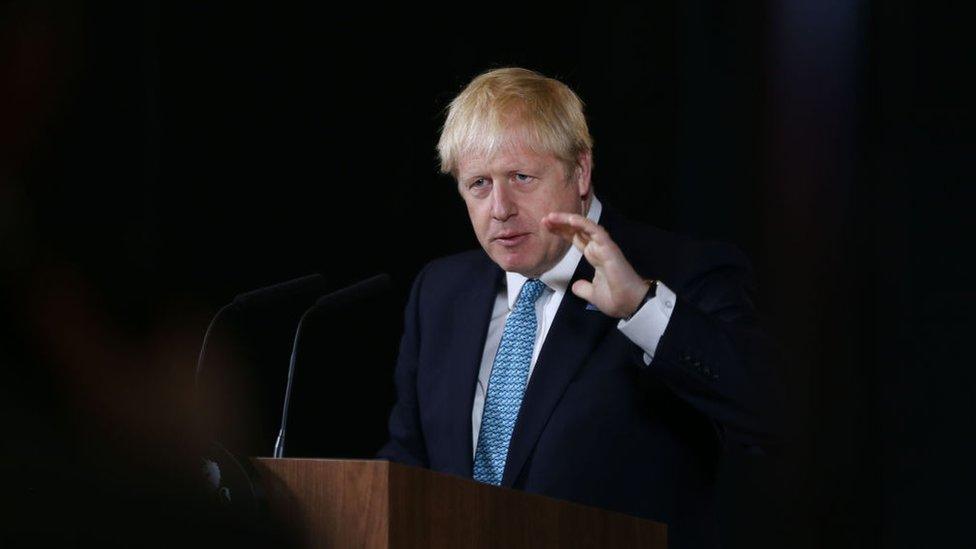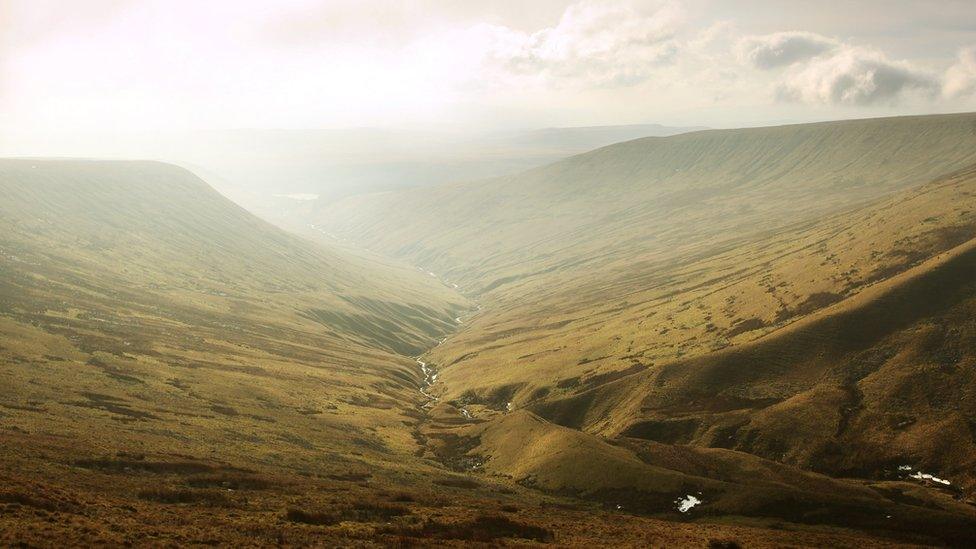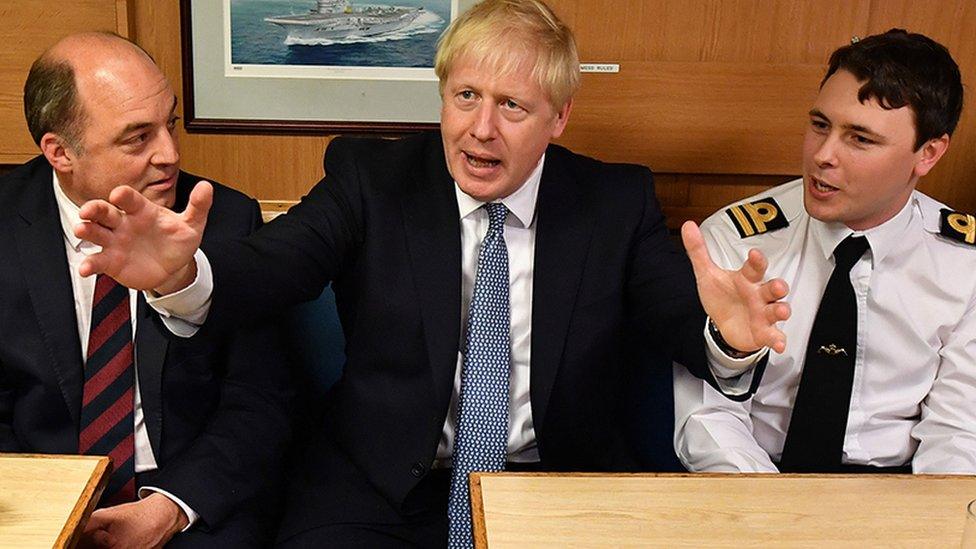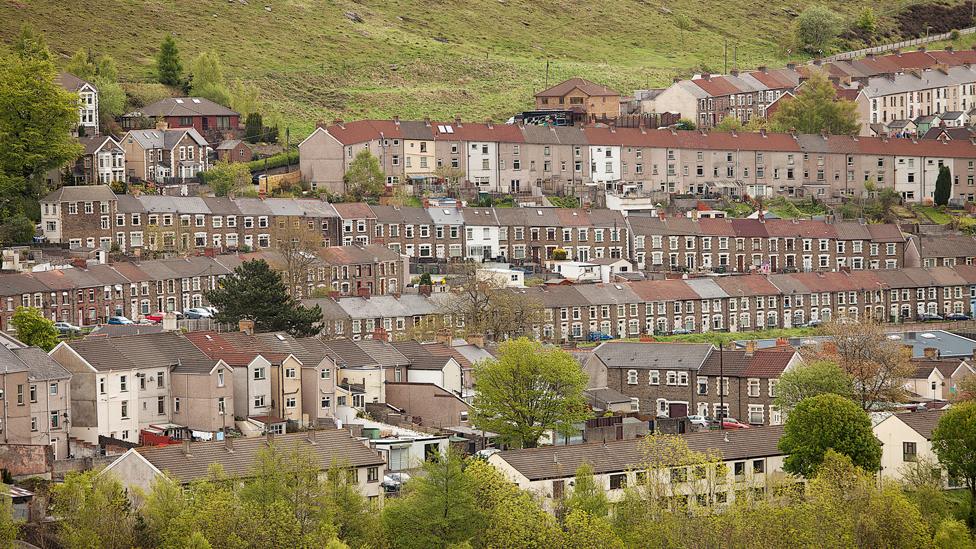Boris Johnson's Wales cash is thin stuff, Labour says
- Published

Boris Johnson called for the renewal of "ties that bind our United Kingdom"
Boris Johnson's promise that mid Wales will benefit from a £300m funding boost for the devolved nations is "very thin stuff", Welsh Labour says.
The new prime minister announced cash on Monday for three growth deals in Scotland, two in Northern Ireland and one in Wales.
It is not yet decided how much of the £300m will go to Wales.
The UK government said the allocation of the money would depend on the strength of proposals put forward.
Growth deals are government funding packages aimed at boosting regional economies, using money from different sources including private investment to be spent on specific projects.
Cardiff and Swansea Bay are at the centre of growth deals already in place while another is being negotiated for north Wales.
The Mid Wales Growth Deal, which covers Powys and Ceredigion, will get a proportion of the £300m cash, which will be spread out over 15 years. It promises a potential of 4,000 new jobs boosting the mid Wales economy by £200m a year.
Transport, broadband and connectivity are expected to be at the heart of proposals likely to emerge in the autumn.
Mr Johnson visited Faslane naval base in Scotland on Monday, with a visit to Wales planned for later this week.
He called for a renewal of "the ties that bind our United Kingdom".
"Our union is the most successful political and economic union in history. We are a global brand, and together we are safer, stronger and more prosperous," he said ahead of the visit to Scotland.

The proposed funding package would cover Powys, which includes the Brecon Beacons
On the matter of funding for mid Wales, Welsh Secretary Alun Cairns said: "I am keen for us all to be as ambitious as possible in driving forward the development of projects, so that they can deliver enduring benefits to businesses and people."
However, Welsh Labour accused the UK government of having made "swingeing cuts" to the Welsh Government's budget over the last ten years.
A spokesman said that set against a "chronic lack of investment" from the UK government in major infrastructure projects, the new funding offer was " very thin stuff".
He added: "Instead of vague promises and half-baked announcements lacking in detail we need concrete action from the UK government to end the punishing austerity the Tories have imposed on our economy and our public services over the last decade."
A UK government spokeswoman said in response: "Today's announcement is about expanding the growth deals programme to areas of Wales, Scotland and Northern Ireland which are yet to benefit from this significant investment.
"This includes additional funding for the Mid Wales Growth Deal where we have a longstanding commitment, having announced starting negotiations at Autumn Budget in 2017.
"All deals involve negotiation and the funding total for mid Wales will be based on the strength and ambition of proposals put forward by local partners."

Analysis - Sarah Dickins, BBC Wales economics correspondent
The Mid Wales Growth deal is at a very early stage. The expectation is that in return for the money from the UK Treasury, the projects chosen will be expected to deliver an increase in the strength of the local economy in terms of productivity or Gross Value Added. That's in contrast to funding being awarded purely because of need.
It is far from clear who would decide what the money would be spent on, nor is it known whether that would be determined in Westminster or Cardiff.
However, projects chosen for funding will have to be innovative and have a wider impact, rather than being spent directly to ease deprived communities. Workers in Powys have the lowest rate of productivity per hour of any local authority area in the UK.
The Growing Mid Wales Partnership has already held workshops, gathering ideas for a growth deal. Along with better communications, some of the ideas have been about new developments in green energy, new agricultural techniques - such as "vertical farming" to get more produce per acre - and local sourcing of food for tourism.
The aim is to create high-skilled, well-paid jobs that will also keep young people in the area and attract others.
- Published29 July 2019

- Published21 July 2019
